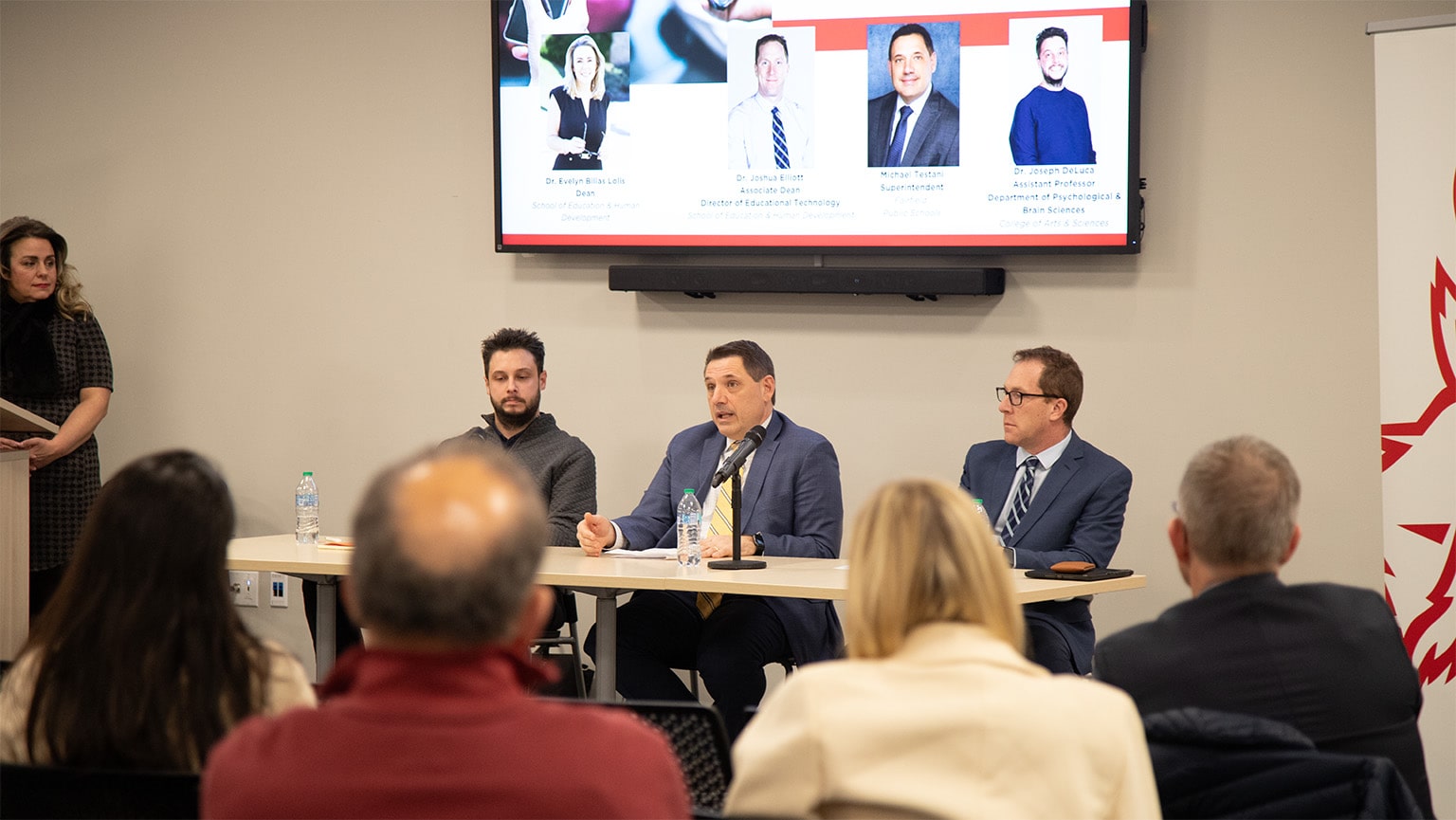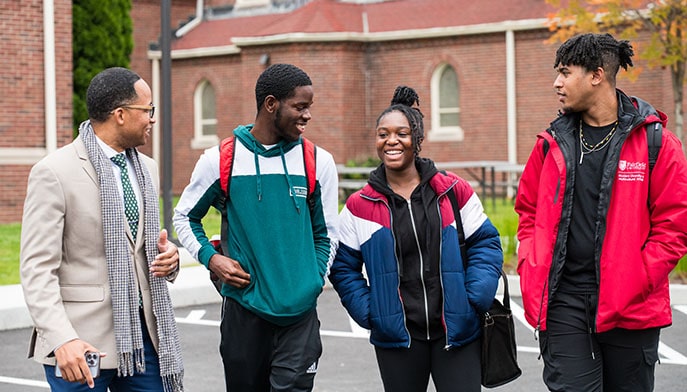Experts discussed the challenges of balancing technology use with academic success and mental health in today’s digital age at the recent Campus Connect, “Screen Time and Study Time: Navigating Devices in Education.”
Fairfield University recently hosted a timely and engaging panel discussion titled "Screen Time and Study Time: Navigating Devices in Education," focusing on the growing concern over cell phone use among youth and its impact on education, mental health, and local policy.
The event was held at the downtown Fairfield University Store and featured a distinguished panel of experts, including local Fairfield Public Schools Superintendent Michael Testani and two Fairfield University professors: Joseph DeLuca, PhD, specializing in clinical psychology with a focus on youth mental health, and Joshua Elliott, EdD, associate dean of the School of Education and Human Development, and director of the University’s Educational Technology Program. Evelyn Bilias-Lolis, PhD, dean of the School of Education and Human Development, served as moderator.
The panelists provided a well-rounded perspective on the complex issue of device use among students and shared valuable insights on how schools, families, and communities can navigate the challenges of technology in education. Superintendent Testani shared the challenges faced by school districts like Fairfield in managing screen time and balancing educational needs with the increasing presence of personal devices in the classroom.
“We need to equip our kids with the skill set to navigate the technology as it continues to change…we try to educate children, not just create rules or laws around when they can access it, but when they do have access, that they can use it responsibly, and use it respectfully, especially when interacting with their peers,” Testani emphasized during his remarks.
Dr. Joseph DeLuca addressed the mental health implications of excessive screen time, particularly the effects of social media on young people. “Technology is here. It's not going anywhere. We're also aware, we are seeing an increase in youth mental health problems. We can't fully say that social media or the internet or screens are causing this crisis. It does play a role as part of the pie,” DeLuca noted. “We need to keep kids safe, help them use digital technology in responsible ways...help them build autonomy, and help them build skills to navigate in an ever-changing and complicated digital atmosphere.”
Dr. Joshua Elliott highlighted the role of educational technology in enhancing learning, but also stressed the importance of setting boundaries for device use in the classroom. “Our students can literally publish a book. They can make a video. They can be active producers and they can make a difference... We can bring someone who is an expert into our classroom. It's also important to harness that piece,” he said. “Devices aren't going away. And even on the college level, we see a lot of conversation with how do we keep it in the classroom.”




